Related Research Articles
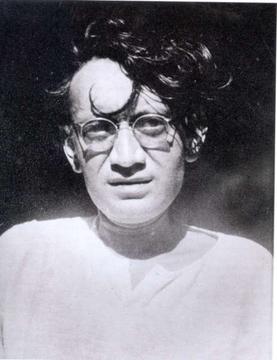
Saadat Hasan Manto was a Pakistani writer, playwright and author who was active in British India and later, after the 1947 partition of India, in Pakistan.

Brigadier Siddique Salik, SI(M), was an officer in the Pakistan Army, combat artist, humorist, novelist, and a memoirist who served as 8th Director-General of the Inter-Services Public Relations from 1985 until his death in 1988 in the plane crash in Bahawalpur with then President. In addition, he also authored two eyewitnessed books on the Bangladesh Liberation War which took place in erstwhile East-Pakistan, giving accounts of politics and the barbaric strategies used by the military.
Intizar Hussain or Intezar Hussain was a Pakistani writer of Urdu novels, short stories, poetry and nonfiction. He is widely recognised as a leading literary figure of Pakistan.
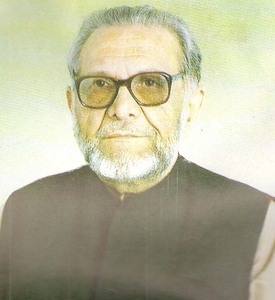
Ashfaq Ahmed was a Pakistani writer, playwright and broadcaster. His works in Urdu included novels, short stories and plays for television and radio of Pakistan. He received the President's Pride of Performance and Sitara-i-Imtiaz awards for his everlasting services in the field of broadcasting and literary heritage of Pakistan.

Sharif Hussain, who used the pseudonym Nasīm Hijāzī, was an Urdu novelist.
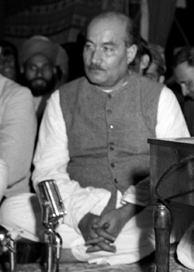
Josh Malihabadi popularly known as Shayar-e-Inqalab was a Pakistani poet.

Hakeem Muhammad Saeed was a Pakistani medical researcher, scholar, and philanthropist. He served as governor of Sindh Province from 19 July 1993 until 23 January 1994. Saeed was one of Pakistan's most prominent medical researchers in the field of Eastern medicine.
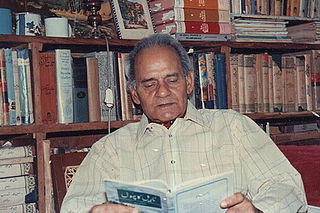
Abdul Hameed was an Urdu fiction writer from Pakistan. He was also known for writing a popular children's TV play Ainak Wala Jin (1993) for Pakistan Television Corporation which was broadcast on PTV during the mid-1990s.
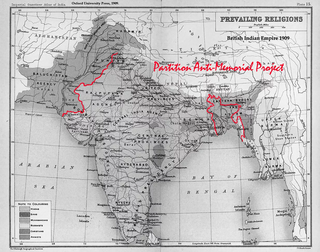
The Partition of India and the associated bloody riots inspired many creative minds in the republics of India, Pakistan, and Bangladesh to create literary/cinematic depictions of this event. While some creations depicted the massacres during the refugee migration, others concentrated on the aftermath of the partition in terms of difficulties faced by the refugees in both side of the border. Even now, more than 60 years after the partition, works of fiction and films are made that relate to the events of partition. W.H. Auden in his poem "Partition" showed the dilemmas of Cyril John Radcliffe, 1st Viscount Radcliffe, responsible for deciding which parts of India went where.
Syed Sibt-e-Hasan was an eminent scholar, journalist and political activist of Pakistan. He is regarded as one of the pioneers of Socialism and Marxism in Pakistan, as well as the moving spirit behind the Progressive Writers Association.
Munir Ahmed Niazi, was a Pakistani poet of the Punjabi and Urdu languages. He also wrote for newspapers, magazines and radio. In 1960, he established a publication institute, Al-Misal. He was later associated with Pakistan Television, Lahore and lived in Lahore till his death.

Rajinder Singh Bedi was an Indian Urdu writer of the progressive writers' movement and a playwright, who later worked in Hindi cinema as a film director, screenwriter and dialogue writer and he is grandfather to Rajat Bedi and Manek Bedi.
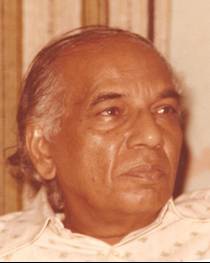
Syed Ali Jawad Zaidi was an Indian Urdu poet, scholar, and author of over 80 books in several languages. He was also an Indian independence activist, lawyer and later, a civil servant, but is best known for his work in Urdu literature.

Taunsa Sharif is a city in Punjab province of Pakistan. It is the capital of Taunsa District. Taunsa Sharif is primarily inhabited by Saraiki speaking and Baloch descent people. It is situated on the bank of River Indus. Taunsa is an agricultural area known for its fertile land and crops.
Shiv K. Kumar was an Indian English-language poet, playwright, novelist, and short story writer. His grandfather late Tulsi Das Kumar was a school teacher and his father Bishan Das Kumar, was a retired headmaster. The letter 'K' stands for Krishna, i.e. Shiv Krishna Kumar.
Tariq Rahman is a Pakistani academic scholar, newspaper columnist, researcher, and a writer.
Niaz Fatehpuri (1884–1966) was the pen name of Niyaz Muhammed Khan, a Pakistani Urdu poet, writer, and polemicist. He was also the founder and editor of Nigar. In 1962, he was awarded the Padma Bhushan by the President of India for "Literature and Education."
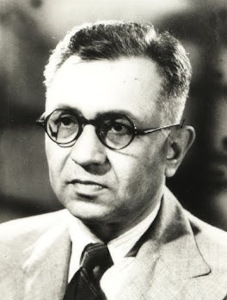
Syed Imtiaz Ali Taj was a Pakistani dramatist who wrote in the Urdu language. He is best known for his 1922 play Anarkali, based on the life of Anarkali, that was staged hundreds of times and was adapted for feature films in India and Pakistan, including the Indian film Mughal-e-Azam (1960).
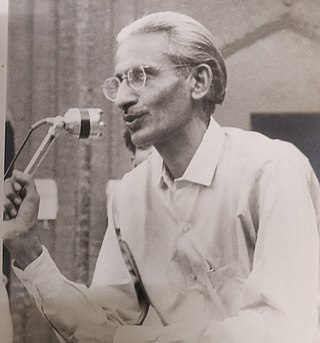
Kanhaiyalal Kapoor, also known as K.L Kapur, was an Urdu satirist known for his sharp wit, ironical style and derisive parodies. He was renowned for his unique writing style and natural talent as a result he was awarded the Ghalib award in the year 1974 by then President of India Dr. Fakhruddin Ali Ahmed for his outstanding contributions to Urdu literature.

Mashkoor Hussain Yaad (1925-2017) was an Urdu language Pakistani poet, novelist and scholar who authored several books. His works include Azadi Ki Charagh, a memoir of his experiences of Partition in Eastern Punjab. Yaad won the Pride of Performance in 1999 and the Sitara-i-Imtiaz in 2011 for his contributions to literature.
References
- ↑ Khullar, K.K. (28 November 1999). "Remembering the doyen of Urdu satire". The Tribune. Retrieved 15 April 2018.
- ↑ "Urdu newspapers are beacons of light". The Milli Gazette. Retrieved 26 October 2007.
- ↑ "A People's History of Partition". The Sun. Retrieved 26 October 2007.
- ↑ http://www.taunsacity.com/fikr_taunsvi.html%5B%5D
- ↑ "The Sixth River - Speaking Tiger Books Speaking Tiger Books". Archived from the original on 22 September 2019. Retrieved 22 September 2019.